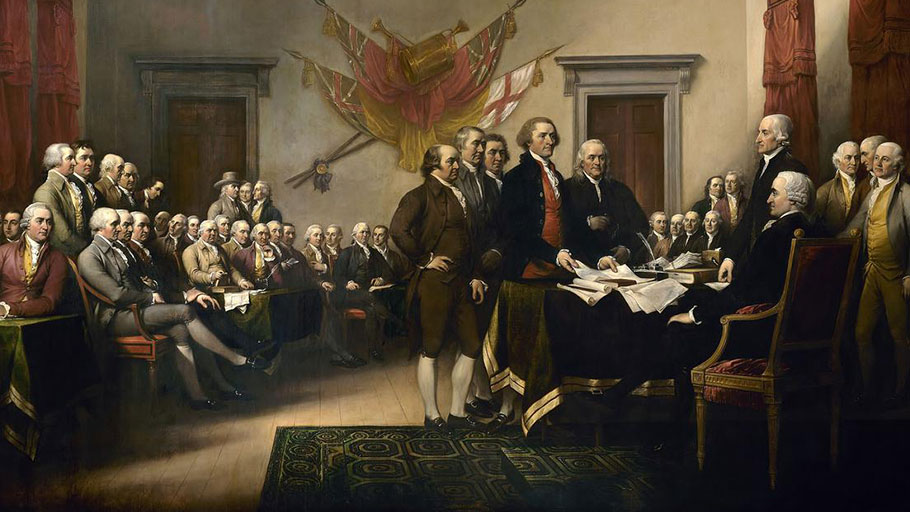The universal consensus on why the Senate Republicans and some Democrats won’t convict Trump is this. It’s merely a case of naked, raw, hard-nosed partisan politics, with a heavy dose of fear. No matter how much more than a few GOP senators detest him, he’s the GOP’s titular head. They must toe the line on impeachment out of party loyalty, political largesse, implacable opposition to the Democrats, and paralyzing terror of Trump retaliation. Certainly, the political optic of that is glaring when GOP senators and House reps’ rail long and loud against the impeachment process. But that’s political theater and bombast.
The blunt truth is that convicting a sitting president poses far too many dangers to the democratic process. Senate Majority Leader Mitch McConnell gave some hint of that in between his strictly partisan vow to scuttle impeachment. He branded it ‘weaponizing impeachment.” And railed, if it’s Trump today who goes, who will it be tomorrow? This is a disingenuous complaint and an almost nonsensical argument. Trump’s unethical, illegal and constitutionally prohibited act to use a foreign power to sabotage a political rival is virtually undeniable. The two articles of impeachment against him: abuse of power and abuse of congress are squarely within the guideline of what are impeachable offenses. How many other presidents in the nation’s history other than Nixon have been that blatantly crime prone?
But it’s still the process itself and the potential and abuse of it that makes it almost impossible to convict a president. The GOP had absolute control of the Senate when Clinton was impeached in 1998. It did not convict. Ten GOP senators flatly said they wouldn’t vote for conviction. True, Clinton was a popular president, and some of the senators came from states that Clinton won. They took the inevitable glance over their shoulders at possible voter backlash for a conviction vote. However, the senators also made clear that the offenses simply didn’t warrant ousting a sitting president from office.
Almost nothing will. The Founding Fathers were deeply wary of ever having to take that drastic step with the nation’s top executive. They warned when wrangling over putting a mechanism in the Constitution for getting rid of a sitting president who abused the office of the extreme danger of using impeachment and conviction as a malicious weapon to cajole, threaten, intimidate, and ultimately remove a president of the opposing party they didn’t like, want, or had a vendetta against. If that happened, this would hopelessly taint the established process of getting rid of a bad or bad behaving chief executive; namely at the ballot box. Removal by anything other than an election, was extreme, and would be widely viewed as extra-legal.
McConnell, GOP senators and Trump scream this at practically every turn. That impeachment is a political hit job by the Democrats on a President that they couldn’t beat at the polls in 2016 and can’t beat in 2020. Here’s where the fear of abuse of the process come in. A conviction of Trump could open wide the gates for going after any future sitting president that the opposing party deems to be a bad president. Since there is no allegation that Trump could be hauled into a court and charged with an actual crime in his wheel and deal with the Ukraine over Biden, that makes the charges and the reason for dumping him even more vague and hazy; and thus seemingly a political hatchet job by the Democrats. A future Democratic president could just easily find his or herself saber rattled with impeachment with the catch all charges of abuse of power and Congress. Conviction sets that dubious precedent.
There’s no assurance that if the script were flipped and the Democrats controlled the Senate that they could muster the two-thirds vote needed to convict. This is a high bar. In the Trump trial there’s absolutely no guarantee that all 47 Democratic senators will vote to convict him. The odds are that a handful of Democratic senators almost certainly will vote not to convict him on one or both of the articles of impeachment against him. The reasons are the same. Conviction brings the risk of jading the political process, stirring voter rage and cynicism, deepening political polarization, and the ease of waging political vendettas using threats of impeachment and conviction.
SCOTUS Chief Justice John Roberts gave a strong hint of the high stakes game of impeachment and possible conviction. He quickly shut down any question of revealing the identity of the Ukraine whistleblower. This along with the narrow down of testimony and documents admitted are strong signals that impeachment is to explosive a minefield for most senators to fully tread through. Trump will be found not guilty. In part for the reason everyone says: brute partisan politics. But in greater part for the same reason Andrew Johnson and Bill Clinton weren’t convicted. Too many senators just see too much bad precedent in ousting a sitting president.
This article was originally published by The Hutchinson Report.
Earl Ofari Hutchinson is an author and political analyst and lecturer on the Electoral College at West Los Angeles College Extension. He is the author of the forthcoming What’s Right and Wrong with the Electoral College (Amazon Kindle)
He is a weekly co-host of the Al Sharpton Show on Radio One. He is the host of the weekly Hutchinson Report on KPFK 90.7 FM Los Angeles and the Pacifica Network.















